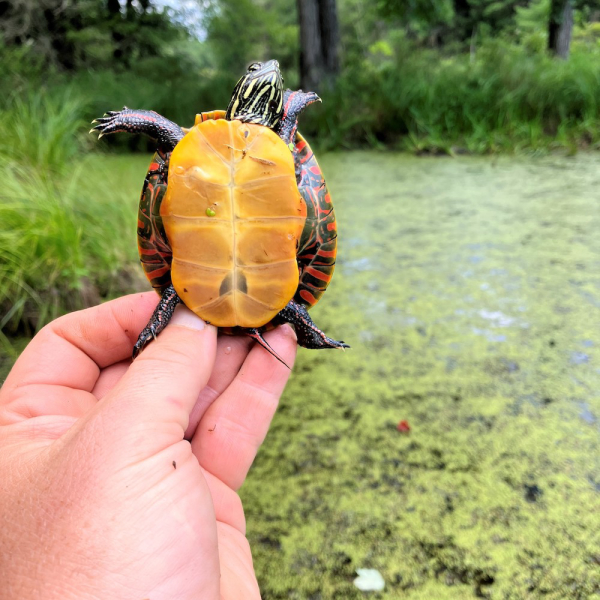
|
The Vermont Fish and Wildlife Department says keeping native turtles as pets is prohibited because it can harm the turtle and pose threats to wild turtle populations.
“Capturing a wild turtle and keeping it as a pet, even if only for a short time, is not only bad for that individual but it could hurt turtle populations as well,” said Vermont Fish and Wildlife herpetologist Luke Groff. “Releasing captured turtles back into the wild can spread wildlife diseases and also affect the genetics of the local population.”
Groff explains that adult turtles usually have well-defined home ranges and know where to find food, mates and shelter. However, a turtle released in unfamiliar habitat may roam greater distances, increasing the odds it will cross roads and be run over.
For some turtle populations, such as rare species populations, the loss of even a few mature females can have serious consequences because turtles are slow to develop, especially at northern latitudes where the growing season is short.
“Many of Vermont’s turtle species do not reproduce until they are at least 10 years of age,” says Groff, “and older, sexually mature females are critical to the long-term persistence of some of Vermont’s turtle populations. Older females have already beaten the odds by reaching maturity and, because they are typically larger than younger females, they tend to produce more eggs.”
Two common species you are likely to see are the Painted Turtle and Snapping Turtle. The Wood Turtle, Spotted Turtle, Spiny Softshell, and Eastern Musk Turtle are rare in Vermont, and Vermont Fish and Wildlife urges you to report sightings of these species to the Vermont Reptile and Amphibian Atlas (vtherpatlas.org). If you see some of Vermont’s native turtles in the wild, feel free to take a photo home with you, but leave the turtles in the wild.
For more information on Vermont’s native turtle species, visit Vermont Fish and Wildlife’s website or contact Vermont Fish and Wildlife herpetologist Luke Groff at Luke.Groff@vermont.gov.